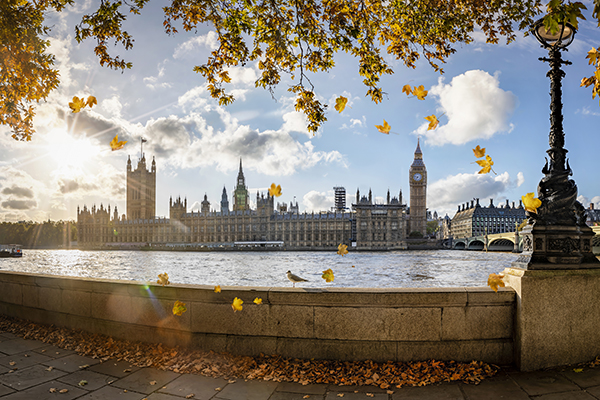RCPod comment on the Autumn Statement

The Chancellor has unveiled his tax and spending plans. RCPod has responded to that statement
Public satisfaction is low in both healthcare and social care.1 But just as public dissatisfaction did not happen suddenly, the factors that have led to it are a long time coming. With that in mind, and the likelihood of a General Election before the end of October 2024, and the slim chance of the current government remaining in power, what is needed is not more short termism for the NHS, and for social care to be once again to punted into the long grass.
Whilst the publication of the long-awaited NHS Long Term Workforce plan may have provided a future for planning for the NHS in England, it wasn’t the silver bullet that the podiatric workforce in England was waiting for. The King’s Speech announced public health commitments to wipe out smoking for future generations, which is a positive in terms of thinking past the end of this Parliament. However, the bandwidth that has been taken up by the 2012 Lansley reforms, Brexit, and Covid has meant that so many challenges from capital investment to digital integration has been left for the next Government to deal with.
Prior to the statement, NHS England has estimated a total system deficit of over £1bn.2 A vast majority of this is due to the cost of industrial action. Yet we know that if a deal had been done it would have saved money long term. Tough non-talking Health and Social Care Secretary, Steve Barclay, was moved to DEFRA, and the new Minster, Victoria Atkins, is believed to take a more conciliatory tone. She said that she was ‘…determined to drive forward discussions with striking unions… to end the ongoing industrial action.’
The current series of emergency funding for English NHS Trusts to cope with the annual winter crisis, is not sufficient to allow health or social care systems to start to work as effectively as they need to. With elective waits remaining high, workforce issues throughout and a winter which could bring high rates of flu, Covid-19, and norovirus, we need to see long-term year on year investment in the NHS, rather than hope for funding to plug the winter gap each year.
In his statement to the House of Commons, the Chancellor struck a surprisingly upbeat tone, and said that the Conservative government has lifted people out of poverty. This despite findings that in 2022 3.8 million people in the UK have experienced destitution,3 and inflation remains the highest in the G7.
There was nothing offered for Health, other than previously announced additional funding of £100 million, to cope with winter pressures. That winter was coming, and with it increased pressures on services, surely should not come as a surprise to the Treasury, especially as the Chancellor was Health Secretary for nearly six years. Long term investment is needed not just for understaffed services, but also for maintenance of estates, an integrated digital infrastructure that will save staff time, and vitally a workforce that is properly invested in to deliver the care needed. But rather than propping the NHS up for another winter, we need to see long-term investment in integrated, preventative care, ensuring that people stay out of hospital through preventive public health measures in primary care and community health services.
For businesses, the Chancellor announced that the full expensing policy, announced in the Spring Budget, will become permanent. This allows qualifying businesses to claim a 100% first-year allowance for main rate expenditure. The Chancellor also announced major changes to National Insurance (NI), including Class 2 and Class 4 NI, which will affect approximately two million self-employed people.
Class 2. From April 24 no one will be required to pay Class 2 self-employed NI contributions. Currently any self-employed person with profits over £12,570 pays £3.45 per week.
Class 4. There will be a 1% cut in Class 4 self-employed NI contributions, from 9% to 8%. From April 24 self-employed people will pay 8% on profits between £12,570 and £50,271. Anything over that figure will remain at 2%.
Whether these cuts are give aways prior to a Spring/ Summer General Election remains to be seen. For health and social care this is yet another missed opportunity for long term investment.
24 November 2023.
Notes:
- King’s Fund. March 2023. Public satisfaction with the NHS and social care in 2022: Results from the British social attitudes survey. kingsfund.org.uk/publications/public-satisfaction-nhs-and-social-care-2022
- NHS England. October 2023. Financial performance update england.nhs.uk/long-read/financial-performance-update-oct-23/
- Joesph Rowntree Foundation. October 2023. Destitution in the UK 2023. https://www.jrf.org.uk/report/destitution-uk-2023
